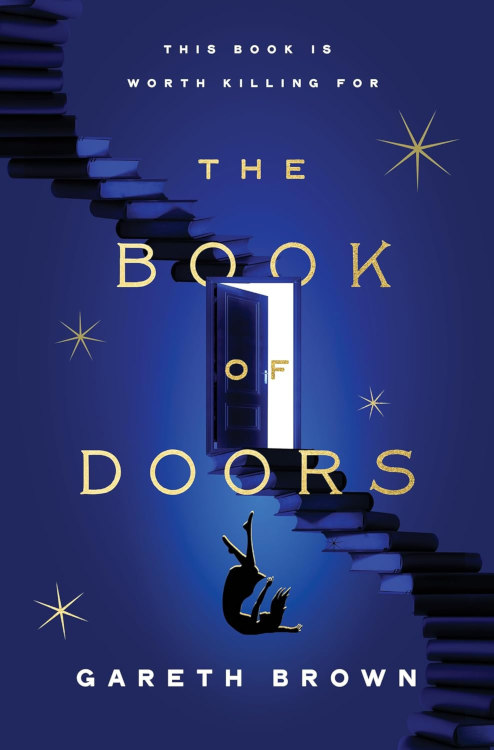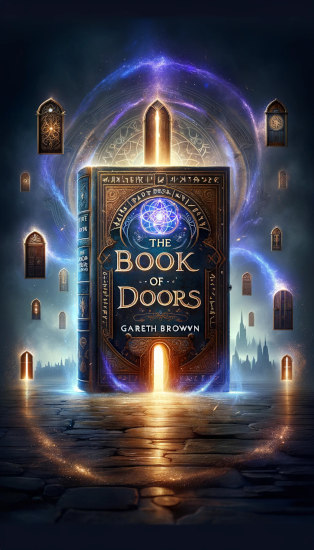It’s rare to hold back from continuing and finishing an excellent
novel in one sitting. As if each chapter, each moment of the plot,
each stage of each character’s journey were a rare gem to delight
separately, in isolation, the whole gradually taking shape like a
labyrinth to be navigated with caution. This is precisely what Gareth
Brown’s The Book of Doors offers us, a particularly promising debut
novel from this Scottish writer.
La version française originale est disponible.
I was thus able to enjoy so many passages and moments of remarkable
beauty. This story coils around itself, developing in narrative
spirals, the major one being the unfolding power of a mysterious book. A powerful mirror effect reflects the very activity in which
any reader is immersed: what is the magic, what are the powers of this
object I hold in my hands, which immerses me in its imaginary
constructions so believable and present?
Today, do the classic divisions of speculative fiction retain their
meaning? Does it matter whether a novel is science fiction or fantasy?
Is it about time travel, or does it relate a quest for enchanted
objects? Must everything be explainable? A book is certainly, in a
sense, a device, man-made, but it is not the seat of a
time machine. Symmetrically, the books that also are the protagonists
of this story are not magical grimoires and spellbooks. Indeed, there
are more books than just the book of doors…

Gareth Brown is part of the contemporary renewal of speculative
fiction by merging its well-known themes to deliver a story beyond
clearly defined categories. This subversive scope brings him closer,
for example, to Robert Jackson Bennett, who also blends traditional
genres in the Divine Cities and Founders Trilogy cycles. But Gareth
Brown draws on our world, our everyday lives, to construct this
unclassifiable story.
He thus relies on realistic, endearing characters who lead very
ordinary lives. He takes the time to give his characters real depth:
it’s from the everyday life of a young bookseller, Cassie, and her
friend Izzie that these marvelous doors open. What if a book were
truly a door to… somewhere else? Why spend so much time immersed in
imaginary stories if they don’t open doors for us that aren’t simply
fictional? Who exactly is this kind old gentleman who comes to read in
the bookstore every day?
However, we will not be carried away to wonderful distant countries or imaginary lands, the whole novel is centered on New York as well as on an ancient Scottish castle where there is a library, and therefore a librarian… The Book of Doors is not an adventure or fantasy novel.
Nor does this novel descend into speculation about the possibilities
or paradoxes of time travel, even though the question is briefly
raised, and firmly resolved. In this way, it takes on a classic
science fiction theme and clearly transcends it. If, in a sense,
everything ends up being explained, and there remains no mystery,
magic, or supernatural, is this really the case? The loops into which
we are swept along with the protagonists of the story take on a
metaphysical depth that roots the essence of all these magical books
in psychology, human being, and emotions in a very surprising way. Where (and when) the hell do these books come from ?
This psychological depth structures the entire book and takes it
beyond the classic genres of fiction; it is a meta-book for book
lovers… Beware of the doors it will open as you read!
